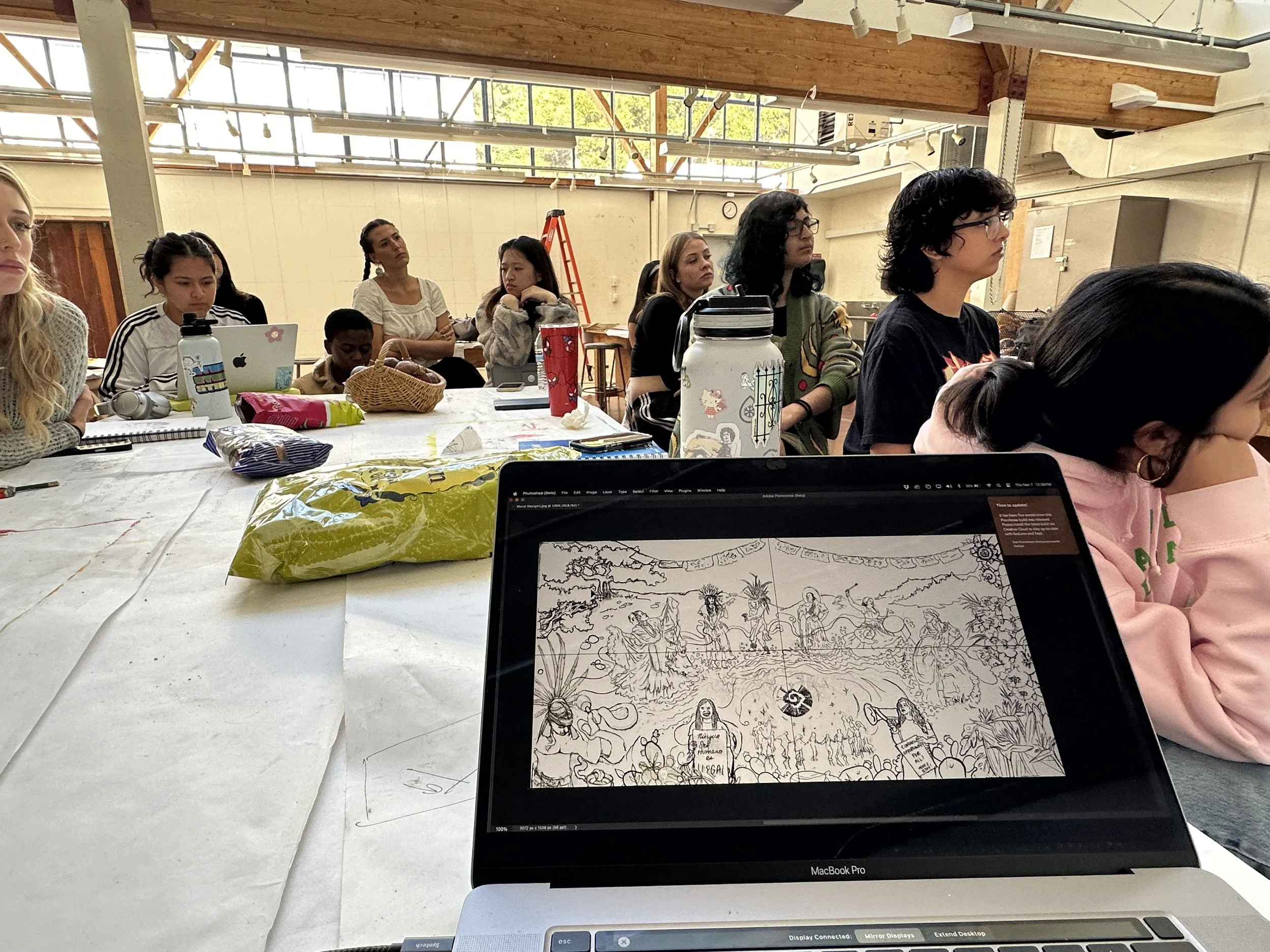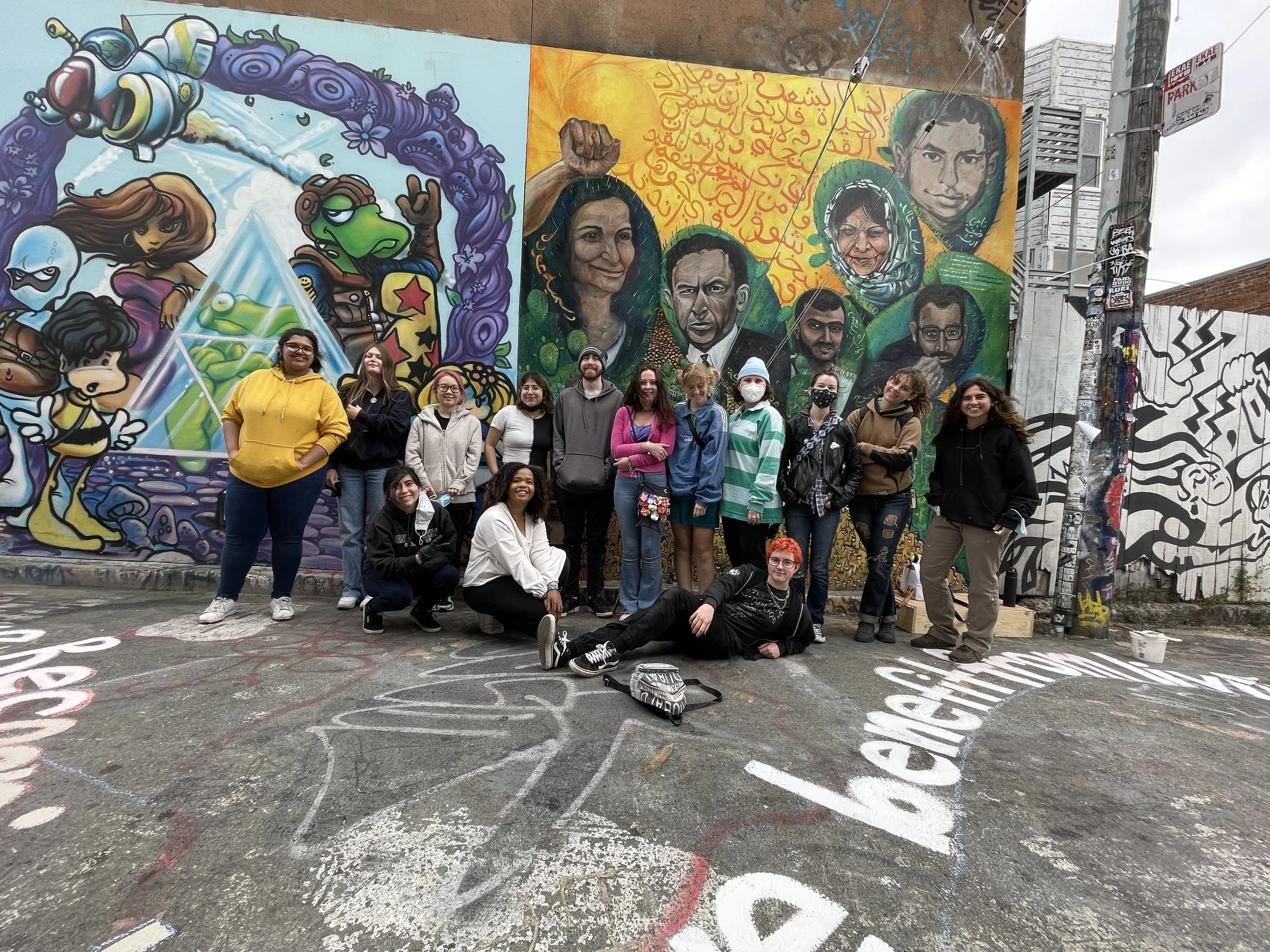Mentorship + Decolonial Pedagogy in Practice
My mentorship practice emerges from a commitment to decolonial storytelling, collective creation, and the transformative possibilities of the arts. I do not engage in art-making to pursue commercial recognition or individual gain. Rather, I see myself as a living conduit—accountable to both ancestors and descendants—dedicated to creating work that restores memory, unsettles dominant narratives, and affirms cultural survivance. My practice is animated by the belief that art can bear witness across generations, bridge histories, and provoke the kind of reflection that leads to action.
I mentor as I create: collaboratively, contextually, and with a deep sense of responsibility to the land, the past, and to the communities I serve. I resist patriarchal systems of education and cultural production that elevate hierarchy and competition. Instead, I foster mentorship as a shared process of unlearning, listening, and world-remaking. My work resists the frameworks of racial capitalism, settler innocence, and anti-Black and anti-Indigenous ideology, and it invites others to enter into that same resistance—not as performance, but as practice.
To mentor, in this context, is to walk alongside. It is to share tools for ideological disruption, to illuminate how power operates, and to hold space for the emergence of alternative narratives and forms. I teach through doing: through collaborative media-making, community engagement, and public acts of cultural intervention. I encourage mentees to enter the symbolic arena not only with critique, but with imagination. Together, we speak where silence has been imposed, where systemic trauma has endured, and where mythologies and ideologies have obscured. Art is a method of inquiry, intervention, and regeneration. My role as a mentor is not to shape others, but to help unlock what history has buried, what institutions have denied, what traumas we carry, and what the future may yet need from us.
At the university, I teach across a constellation of courses that integrate decolonial theory, critical media practice, and collective cultural inquiry. My teaching spans Chicana/o/x and Latinx Film & Media, Documentary Animation, Muralismo and Street/Public Art, Indigenous Media, and Social Art Practice. I also offer courses in Science Fiction and Speculative Futures, where we explore Afrofuturism, Indigenous Futurisms, and Chicanxfuturism as radical narrative tools. In “Taking Art to the Streets,” students engage in site-specific interventions and community-based artmaking. Whether analyzing cinematic form, producing collaborative murals, or designing socially engaged media, my pedagogy encourages students to investigate the intersections of race, memory, power, and imagination through hands-on creative and theoretical inquiry.





